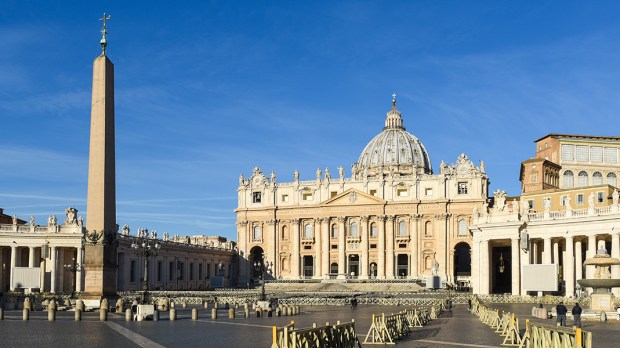The Italian investigative journalist, Gianluigi Nuzzi, has published his third book on the Vatican. Despite a certain taste for sensationalism, his work confirms a certain number of blockages within the Curia.
At the beginning of November, a book by the Italian journalist, Nuzzi, made some new revelations about the Vatican. Documented globally, this work aims to shed some light on a certain number of blockages against a change desired by successive popes, notably concerning financial management.
The subject, broached at length by Nuzzi, concerns the Institute for the Works of Religion (IOR), or the Vatican Bank. Relating to the laws of the small state, which hasn’t always been subjected to the same transparency norms as those of other European banks. Since the 1960s, a certain number of people have used it as a means of concealing their money. This information – never fully confirmed – is not exactly breaking news, and Nuzzi’s book only adds further details.
After his election in 2005, Benedict XVI began a reform of this bank, to make it subject to the common rules of other banks. He therefore issued new norms and changed the management teams. However, Nuzzi affirms, the German pope found himself confronted by blockages: some undermining this desire to reform.
For the Italian journalist, this should be seen as an explanation for the historic renunciation by Benedict XVI in 2013: to spring a surprise and confront these “blocks,” and allow the election of a pope gifted with a powerful legitimacy and a clean purified mandate. That is what Francis set to doing immediately after his election: a reform of the IOR, of the Vatican’s financial management, and more generally the functioning of the Curia. But for Nuzzi, certain blockages remain in place.
Among these pressure groups reported by the investigative journalist, a “gay lobby”: a group of Vatican priests, bound by the secret of their shared homosexuality. They used this lobby as much as to put pressure on each other, as to block against the desired reforms from the Supreme Pontiffs.
While overall the book addresses the financial or managerial issues, it ends on a whole other subject. Nuzzi maintains that a young supervisor of the sole little seminary in the Vatican used his position to sexually abuse one of his students. An inquiry carried out by the Vatican couldn’t confirm this information to the journalist.

